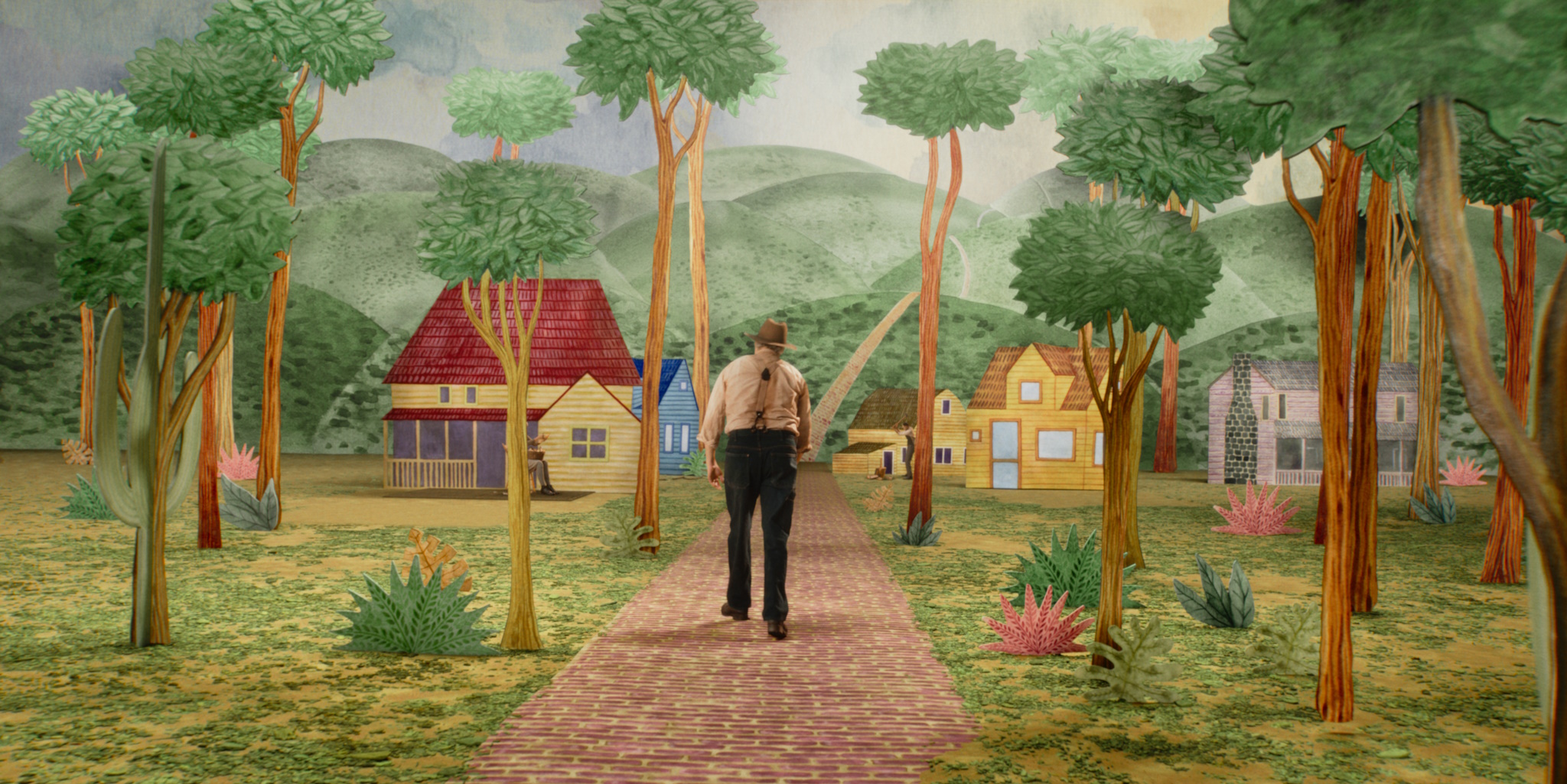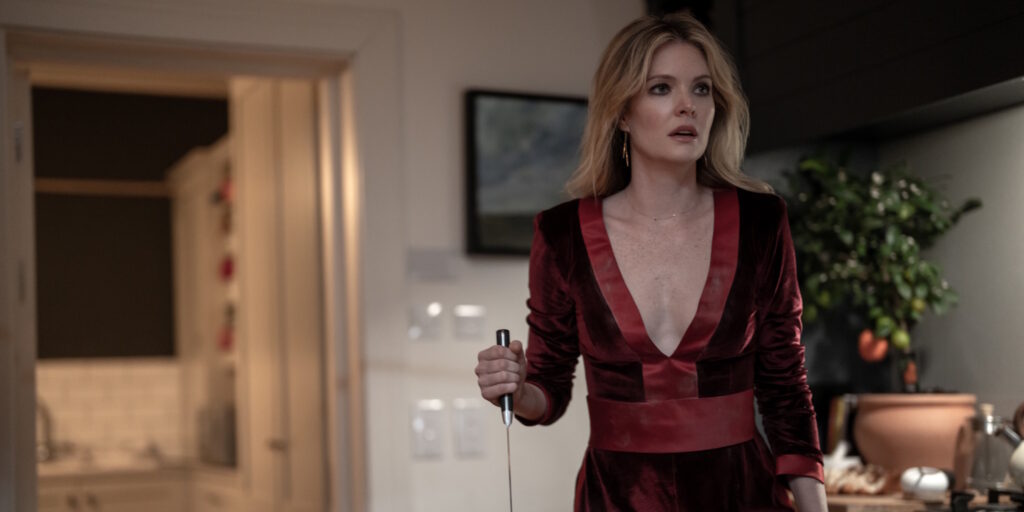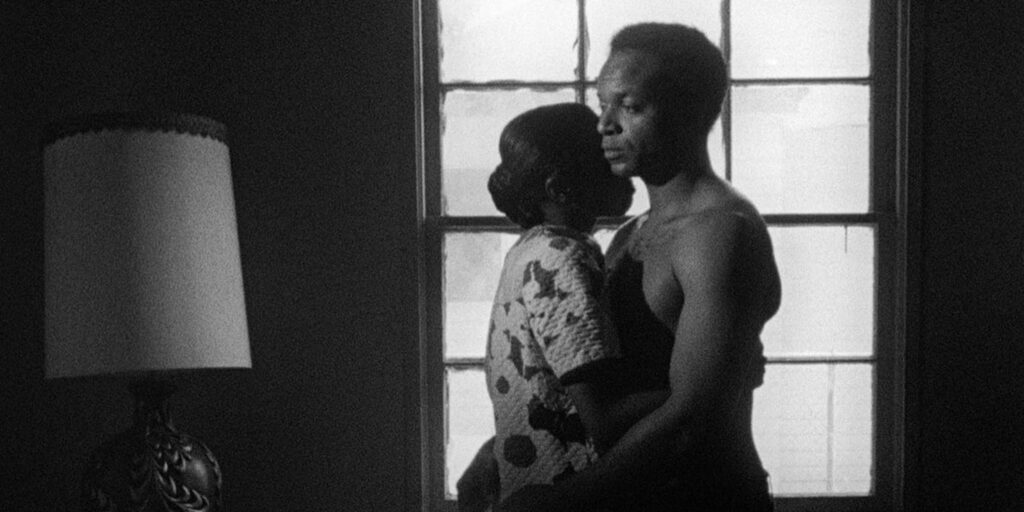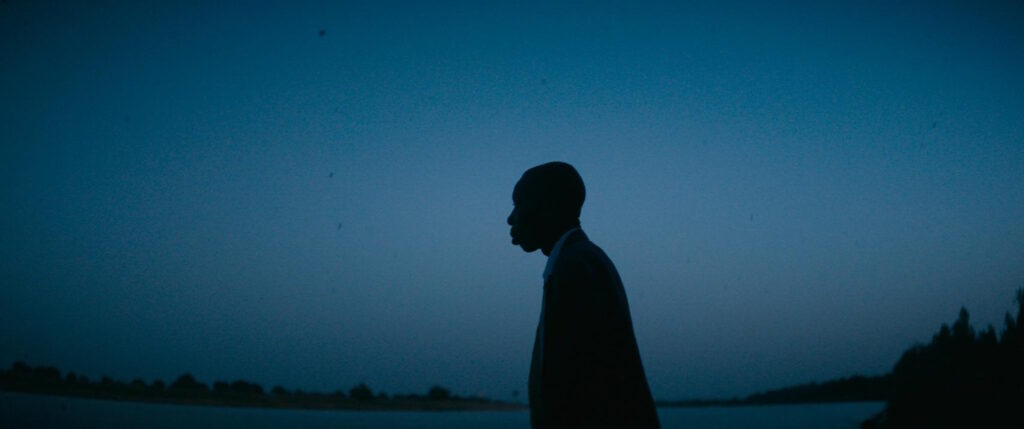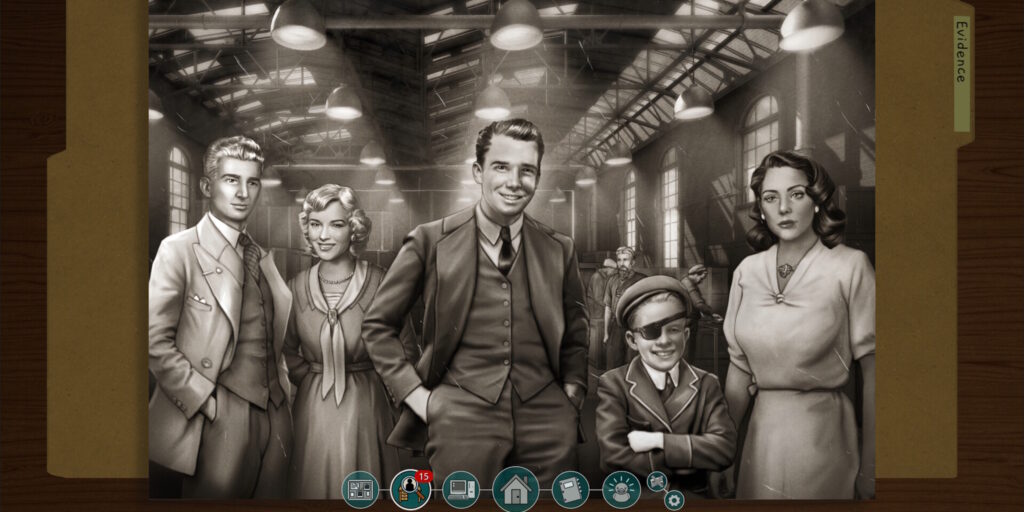Beau is a mess. Portrayed by a paunchy, alarmingly frazzled-looking Joaquin Phoenix with characteristic fearlessness, Beau Wassermann is the apotheosis of a sad-sack, slump-shouldered man-child. He dribbles out his words in a whiny, strangled murmur, punctuating his lines with phantom question marks, as if every sentence were a pleading apology. We first meet Beau in the office of his therapist (Stephen McKinley Henderson), a grinning, roly-poly confessor who asks leading questions and writes one word on his notepad: guilty. Beau is indeed defined by his guilt, but also by his all-consuming anxieties – particularly those that swirl around his domineering business-mogul mother, Mona (Patti LuPone). Her withering displeasure practically oozes through his phone as he haltingly explains that won’t be able to make a scheduled visit. He stammers and grovels and apologizes over and over, Phoenix adeptly depicting the way that decades of oppressive guilt-tripping have ground this man into dust.
Fittingly, Beau Is Afraid is also kind of a mess. For his third feature film, art-horror sensation Ari Aster (Hereditary, Midsommar) has created his rawest, funniest, and most perplexing work, an Oedipal odyssey that unfolds and unravels over three nightmarish hours. It features at least three jarring tonal shifts, not counting flashbacks and an extended animated fantasy sequence that plays like The Red Shoes (1948) by way of Quentin Blake’s Roald Dahl illustrations. It somehow evokes Adam Resnick’s Cabin Boy (1994) and then Orson Welles’ The Trial (1962) in the space of about 20 minutes. Although much that befalls Beau is horrifying, this is not a horror film in any meaningful sense. Indeed, neat-and-tidy genre labels feel decidedly unhelpful when it comes to this surreal, tragicomical saga, which alternately recalls Albert Brooks, George Romero, Terry Gilliam, the Coen Brothers, and Charlie Kaufman – without feeling particularly beholden to those or any other influences.
Beau Is Afraid is singular: an unruly, sticky, and often exhausting journey through a funhouse maze of mommy issues. It is bristling with tangents and detours. Indeed, it is a film practically constructed of tangents, with Beau bumbling through moods, styles, and genres in a manner that suggests the fluid illogic of a dream. Aster stuffs his feature with shaggy-dog jokes, oddball cameos, and more blink-and-you’ll-miss-it sign gags than a season of BoJack Horseman (2014-20). It has scenes of intense, discomfiting emotionality and eye-popping tableaus of apocalyptic absurdity. It also has a giant penis monster. It will doubtlessly baffle and annoy viewers who were expecting another remorseless horror death-trap from Aster, who has been cheerfully apprehensive about how the film will be received. (In fine David Lynch fashion, he has also remained relatively tight-lipped about what it all means.) In short, this is a film of big swings. Not all of them connect, but it’s undeniably invigorating to witness a superlative filmmaker deliver a work so marvelously strange and imprudent.
Beau might be an insufferable drag, but his neuroses are at least understandable. Apart from the damage wreaked by his mother’s stifling parenting, he trudges through a madhouse world that seems birthed from the unholy union of Robert Crumb and Paul Verhoeven. In this darkly absurd urban hellscape – which also evokes Repo Man (1984) and the Italian “slum exploitation” films of the 1980s – a random, daylight stabbing in the street barely warrants a second glance. Canny viewers might clock the “MW” corporate logo plastered on seemingly every object in Beau’s dismal surroundings, from the announcements posted by his apartment manager to the microwave dinners that he joylessly consumes. All the manifold miseries of Beau’s existence somehow lead back to Mona Wassermann, and to the void left by the father who perished of a congenital heart defect at the very moment Beau was conceived. The fact that Mona (Zoe Lister-Jones) once recounted this incident to her tweenage son (Armen Hahapetian) as if it were both a Chosen One origin tale and a creepy ghost story explains a lot about Beau’s sexual repression and general demeanor of constant, mortal terror.
Beau Is Afraid is structured like a demented, Jewish-American satire of the Hero’s Journey, pitched in the key of the worst anxiety dream imaginable. Beau simply wants to visit his mother, but the world (and his own haplessness) seems to conspire against him at every turn, such that he can barely make it out the front door for the first 45 minutes of the film’s running time. (There’s a brilliant, Barton Fink-like bit involving a neighbor who keeps slipping increasingly hostile notes under his door about nonexistent loud music.) This film’s first segment – one hesitates to divide such a lurching, convoluted film into traditional acts – might be the most hilariously, horrifyingly accurate depiction of anxiety disorders ever filmed. As a sweaty, disheveled Beau careens through a succession of snowballing catastrophes, Aster gleefully amplifies the sensation of an out-of-control, waking nightmare with every tool at his disposal.
Unfortunately, in the wake of the deranged, dizzying heights of this first section, the remainder of the film can’t help but feel a little sluggish. This is almost certainly by design, but intentionality doesn’t alleviate the nagging sensation of a long, ponderous exhale after the intensity of Beau’s opening tribulations. In the second episode, an injured Beau finds himself in the care of cheerful suburban couple Grace (Amy Ryan) and Roger (Nathan Lane), who fixate on our hero with unsettling intensity. (There’s a knowing, cockeyed joke in casting Lane as a wholesome Ned Flanders square who sports a push-broom mustache and lives to barbecue.) Later still, Beau stumbles on an encampment of free-spirited theater performers deep in the woods, where he is swept up in (and seemingly absorbed into) their production of a fanciful folk epic. Chilean animators Cristóbal León and Joaquín Cociña, directors of the surreal stop-motion horror feature The Wolf House (2018), enliven this episode with a painterly, storybook interlude that twists itself into a narrative Möbius strip.
The episodic character of Beau’s journey – from city to suburbia to wilderness to the proverbial dragon’s lair – establishes the gratifying sensation of a heroic quest (or perhaps a well-told joke), providing some much-needed structure to all the hideous chaos of our hero’s travails. Aster’s plentiful allusions to the Hero’s Journey scan less as Mythology 101 pretension than as an acknowledgement that the human mind is irresistibly drawn to such structures. Beau Is Afraid is firmly embedded in its protagonist’s subjective experiences, after all, which suggests that Beau is impressing a primeval template on his struggle with his crippling Freudian neuroses. Hero’s Journey codifier Joseph Campbell preferred Carl Jung, but it’s worth noting that he plucked the term “monomyth” from James Joyce’s 1939 novel, Finnegan’s Wake. It therefore hardly seems incidental that Beau Is Afraid often echoes Joyce’s 1922 day-in-the-life modernist opus, Ulysses. (Oedipus, Freud, Jung, Joyce, Campbell: It’s a bit like a snake eating its own tail.)
Unfortunately, Aster’s unrestrained intellectual and creative ambition can feel a little draining in practice, especially when it wanders languidly about without the madcap energy of the film’s opening section. In fairness, bursts of left-field violence and fantastical oddness occasionally disrupt this sensation. Beau has a questionable secondary nemesis in Grace and Roger’s psychotic surrogate son, Jeeves (Denis Ménochet), for example, who charges through the middle section of the film like the love child of the Tasmanian Devil and Raising Arizona’s (1987) demonic manhunter Leonard Smalls. In the main, however, Beau Is Afraid often struggles to maintain the narrative vigor necessary to propel it through three long, eventful hours. Momentum feels critical in a film that is such an enthusiastically excessive hodgepodge of ideas, emotions, and tones.
Eventually, Beau finally reaches his mother’s comically modern home to face a reckoning for all his failings as a inconstant, ungrateful, and disappointing child. The exact circumstances of his arrival complicate this mother-son reunion in rather ghastly ways, as does the unexpected appearance of a childhood crush (Parker Posey) who has haunted Beau for 40 years from a faded vacation Polaroid. However, the film’s final half-hour serves foremost as a showcase for a typically riveting LuPone, who gets to sink her teeth into some suitably juicy monologues. This includes a jaw-dropping variation on Ozymandias’ “I did it 35 minutes ago” speech from Watchmen (1987), which just underlines every Jewish boy’s secret, shameful suspicion that their mother is an omniscient supervillain.
So many dissonant ingredients pile up in this final stretch – psychosexual weirdness that nods toward William Burroughs and David Cronenberg, stomach-flipping reversals straight out of a Korean or Japanese horror movie, and sly visual references to Aster’s previous films – that Beau Is Afraid feels as if it’s gone off the rails. In truth, the film jumped the tracks the moment that Beau steps out of his therapist’s office, barreling forward on the strength of Phoenix’s whole-body performance and Aster’s demented imagination. It’s a work that is both maddeningly opaque and as crudely obvious as public-restroom graffiti. (Ari, please, call your mother.) Never boring, but often frustrating, it’s the kind of $35 million auteurist Rorschach test that is destined for cult appreciation and years of contention. It’s Aster’s least successful film to date, and I’m very grateful that it exists.
Beau Is Afraid is now playing in select theaters and will open locally on Friday, April 21.
